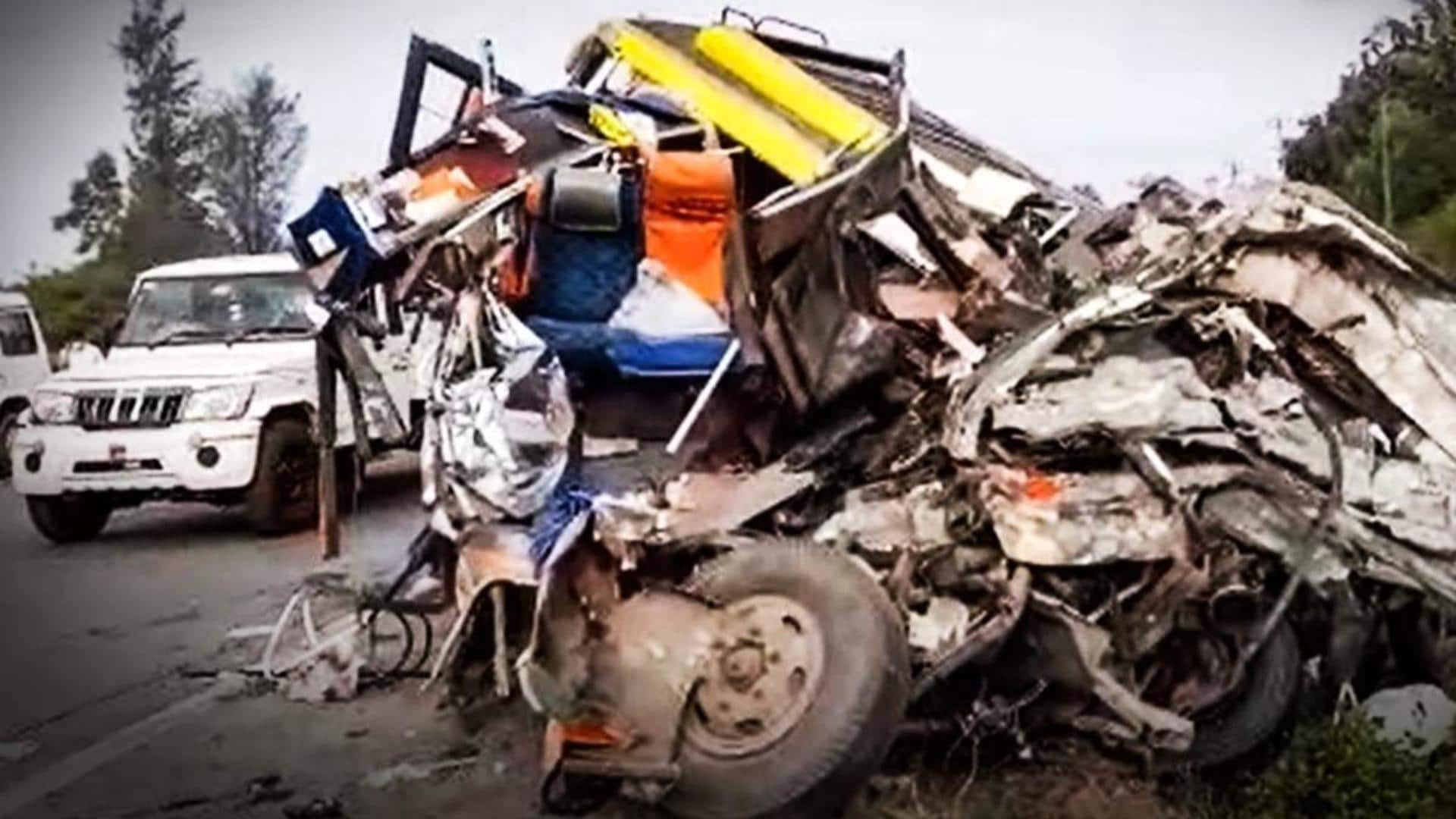
Centre rolls out eDAR to tackle road fatalities in India
What's the story
The Indian government has launched electronic detailed accident report (eDAR), an application designed to collect real-time data on road crashes and generate live heat maps. The platform offers insights into accidents on 500-meter stretches across the country, empowering local authorities to take action and reduce fatalities. With over seven lakh accidents registered, the Centre aims to reduce road accident deaths by 50% by 2030.
Process
How is localized data collection ensured?
For data collection, India is divided into two square kilometer grids, each of which is given a unique ID. Using Geographic Information System (GIS), the number of crashes in every grid is recorded. Separately, the eDAR divides the grids into 500-meter segments and assigns them distinct colors based on the severity of accidents. Details like individuals/vehicles involved and time of mishap are also recorded.
Steps
What are the steps for data collection?
The data collection procedure starts when the police arrive at the accident site. First, they input all relevant details into the eDAR application. Next, they alert the relevant road-owning agency, as well as the transport and health departments, to provide further information. This ensures that the relevant data is promptly handed over to the relevant authorities so that they can take action.
Measures
What other steps are being taken to ensure road safety?
In collaboration with the Indian Institute of Technology (IIT) Madras, the Union government is developing an application that will use Artificial Intelligence (AI) and Machine Learning (ML) for deep analytics of road accident data. The aim of this cutting-edge technology is to enhance road safety measures while addressing challenges such as data privacy and accuracy.
Details
Why is the government taking such steps?
As a country with a record number of road deaths globally, India faces challenges like overspeeding, drowsiness, and underage driving. To tackle these issues, the government has implemented measures such as curbing underage driving and setting timelines for mandatory provisions like Advanced Driver Assist Systems and Alcohol Ignition Interlock Devices by 2030.